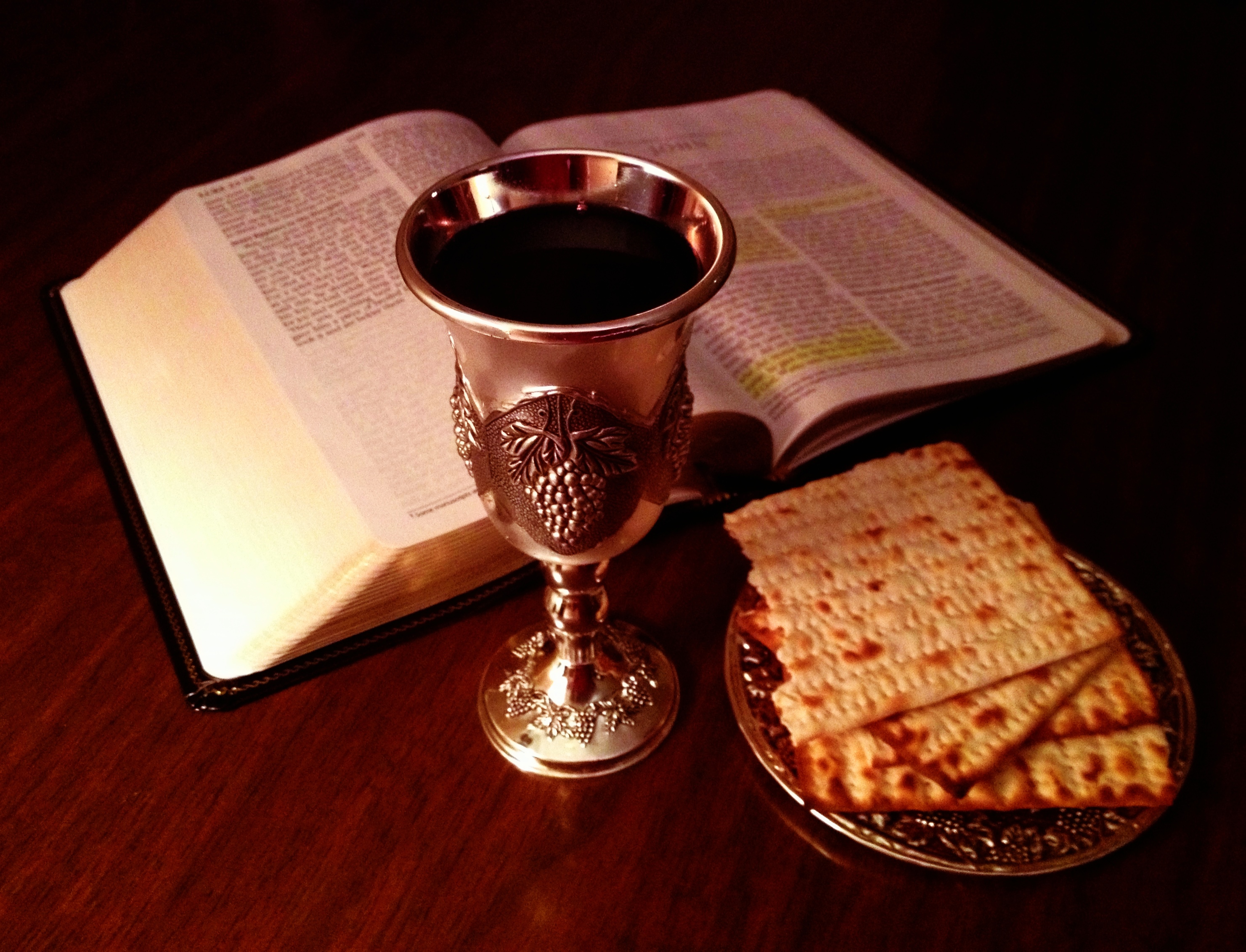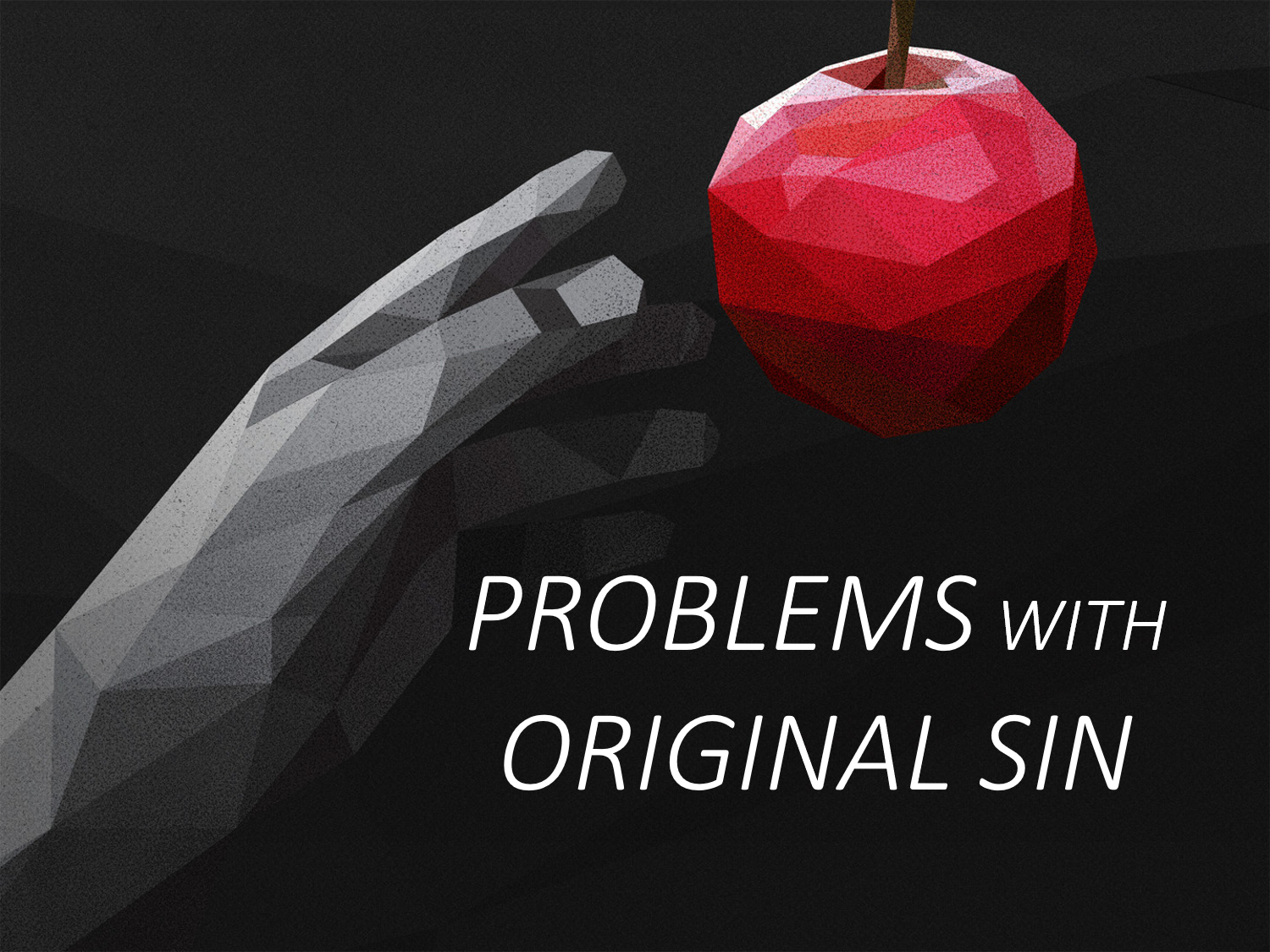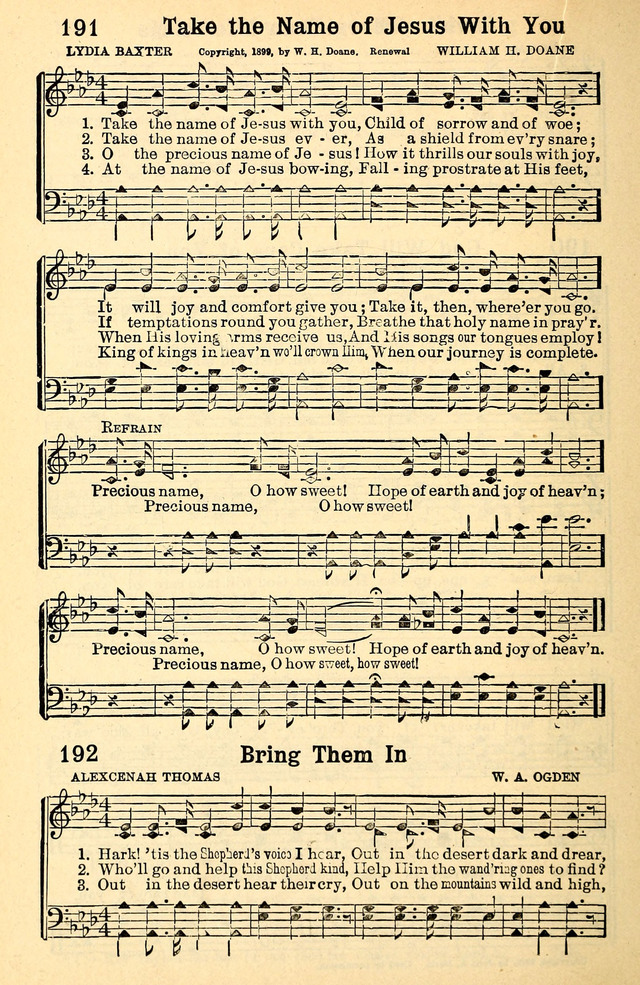Blog
We Eat with Hope
Thursday, June 27, 2019

We eat with grief before the tree
So sacred to our memory.
With bread and cup, we mourn the loss
Our Savior suffered on the cross.
We eat with joy before the grave
Where He took up the life He gave.
"The Lord arose!" our hearts repeat
Each time we come in faith to eat.
We eat with love for those who share
His holy supper everywhere.
On this first day, we join as one,
United by the gracious Son.
We eat with hope and look ahead,
Assured of what our Master said.
We know this feast to be the sign
That in His kingdom, we will dine.
Summaries, Psalms 57-61
Wednesday, June 26, 2019

Psalm 57 pleads with God to show mercy. David acknowledges that only God can protect him from the storms of life. He trusts that God will save him and embarrass those who seek to harm him. He views God’s help as particularly necessary because he is surrounded by enemies whom he compares to lions and fire. The first section concludes with the chorus contained in 57:5 (and repeated in 57:11).
These enemies have sought to ambush David, but through God’s help, he turned the ambush around on them. As a result, David continues to steadfastly trust in God, and he seeks to praise Him as enthusiastically as he knows how.
Psalm 58 is addressed to the arrogantly wicked. David calls them out for claiming to be righteous judges while treating others unfairly. He hyperbolically claims that they were wicked from birth, and he compares them to venomous snakes.
David then asks God to break the teeth of these “snakes” in their mouths. He wants them to disappear as though they never had existed, to be consumed as quickly as thorns in the fire are. David concludes by predicting that if God treats the wicked like this, the righteous will rejoice and mankind will acknowledge His judgments.
Psalm 59 is another plea for help from David when he is beset by his enemies. The superscription says that David wrote this during/after the events of 1 Samuel 19:11-17. David says that these enemies are lying in wait to destroy him, even though he has done nothing wrong. He invites God to come and judge them all, himself included, and to punish the wicked, whoever they are.
David goes on to compare his enemies to packs of wild dogs who are prowling around the city. They’re unconcerned with whether anyone notices them, but David knows that God sees them, sneers at them, and will destroy them. David asks God not merely to kill them, but to bring them low in a way that will reveal His power and lordship. Even as they are in the midst of their prowling and growling around, David will continue to trust in God’s protection and deliverance.
Psalm 60 appeals to God for help in battle. It begins by lamenting that God has destroyed Israel’s defenses with an earthquake. However, even without those defenses, God will still protect those who trust in Him.
The psalm then begins to speak for God, answering David. God states that He controls not only the territory of the people of Israel, but even the lands of their enemies.
The final portion of the psalm is David’s reply to God. He wants to know who will help him, expresses his fear that God has abandoned him, and pleads with God to accompany him so that he will have success.
Psalm 61 asks God to hear David’s prayer. He is weary, but he looks to God to be his refuge like a towering rock would be. He wants God to allow him to dwell with Him forever because of his faithfulness and God’s past blessings. The psalm concludes with a final appeal for lifelong protection and a promise to praise God and perform the vows made to Him.
Problems with Original Sin
Tuesday, June 11, 2019

Believe it or not, brethren, we’ve finally come to the end of this half-hour study series. Because the goal of this is to equip you to study with people, I’ve had Jennifer include in the bulletin a sheet that you can fold in half and stick in your Bibles. It has an outline for every sermon in the series, with Scriptures. If you need a refresher on what to say about each point, the link at the top goes to a post on our church blog with links to each individual sermon. Hopefully, this will help y’all for years to come!
Also, all the way through this series, I’ve been saying that these studies are nothing more than introductions to some very complex topics. Never has that been truer than with this morning’s sermon. The doctrine of original sin is one of the foundations of Calvinism, and I could easily preach sermons on Calvinism until 2020 without running out of material! What I have to say this morning won’t be enough to convince Calvinists who really know their Bibles, but it might be a conversation-starter, and it could also be useful for somebody who has heard Calvinist teaching but doesn’t really understand the Scriptural basis of the argument. With these modest aims in mind, then, let’s turn to the Scriptures to explore three problems with original sin.
For those of you who aren’t familiar with it, the doctrine of original sin is the idea that every human being inherited the guilt of Adam’s sin in the garden of Eden. We believe that all people die physically because of that sin, but Calvinists argue that every human being is also spiritually dead because of it. Thus, a newborn baby, minutes out of its mother’s womb, if it dies and is not baptized, will go to hell because it is stained by original sin.
This is an extremely powerful doctrine. If you accept it, it will change the way you read the entire Bible. However, there are some powerful reasons not to accept it. First, IT DENIES THE INNOCENCE OF CHILDREN. Look at the words of our Lord in Mark 10:13-16. Here, of course, we are looking at a situation that existed hundreds of years before anybody suggested the existence of original sin. None of these children have been baptized. The boys would have been circumcised, but there is nothing in the Law of Moses that says that the purpose of circumcision is to take away sin.
Nonetheless, Jesus says of these children that the kingdom of heaven belongs to them. They don’t need His grace to enter that kingdom. They’ve got it already. They don’t have to be baptized as children so that they can receive the kingdom like us. Instead, we must receive the kingdom like them.
Clearly, in the Lord’s eyes, there is not a thing wrong spiritually with any of the children He is blessing. This lines up with our own experience. Even though children can certainly disobey, all of us who have been parents or even older siblings know that they don’t have a true consciousness of sin. On their own, they are entirely innocent.
What Calvinists would have us believe, though, is that even though they have committed no wrong themselves, they stand condemned regardless because of inherited sin. Unless they just happen to be born into a family that believes in baptizing infants, if they die before maturity, they will be eternally condemned.
There are many who question the existence of God because they can’t understand how a loving God would allow children to die. However, the death of innocent children pales in comparison to the horror of millions of children who had never done anything wrong being sentenced to hell for what somebody else did. That, brethren, could only be the work of a God who is not loving, not merciful, and not even just!
This, indeed, takes us to the second major problem with the doctrine of original sin. IT HOLDS US ACCOUNTABLE FOR OTHERS’ SIN. I think there are fairness problems associated with that, but even more than that, God says outright that it’s not how His justice operates. Here, let’s consider Ezekiel 18:1-4.
This text tells us that in Ezekiel’s time, the Jewish exiles were playing the blame game. The proverb that God cites means, “Our fathers were the ones who sinned, but we were the ones who got punished.” That’s awfully convenient if you don’t want to admit your own guilt. You can just blame your bad circumstances on Dad.
In response, though, God says that the soul who sins will die. The rest of the chapter elaborates on this theme. If the father is wicked, he will die. If the son is wicked, he will die. However, a righteous son will not bear the punishment due a wicked father.
This presents a massive problem for anyone who wants to argue for original sin. My own father was a faithful Christian, but even if he had been a scoundrel, I still wouldn’t be punished because of what he had done. That being the case, how could I or any of us possibly be stained with guilt because of what our ultimate ancestor Adam did? If the son will not die for the sins of the father, why would any of us die because of the sins of our many-times-great-grandfather?
Of course, practically speaking, this doesn’t help me much. I may not be guilty because of the sin of Adam, but I am guilty because of the sins I’ve committed myself. However, it is good to know that God will only hold us accountable for what we’ve done!
Finally, the doctrine of inherited sin is problematic because IT MINIMIZES THE POWER OF CHOICE. There are many texts that emphasize the importance of free will, but let’s look at Hebrews 12:25. This passage offers us a stark choice. Either we hear the One who warns us from heaven and live, or we refuse Him and die.
To my thinking, it simply doesn’t make much sense for the Holy Spirit to tell us such things if our eternal destiny is predominantly determined by things other than our own choices. It reminds me of a soccer coach I saw once—not my children’s coach, thankfully—back in Illinois. He told all of the five-year-olds on his team that he would give them five dollars if they could beat him in a race across the field. For the first three-quarters of the race, he dogged it and made them think they could beat him, but in the last quarter, he raced ahead and made sure none of them would collect. What a jerk!
If God tells us that our actions matter, but they really don’t matter because we’re doomed no matter what, as far as I’m concerned, He’s no better than that jerk soccer coach. Frankly, that doesn’t sound like the God I know from the Bible. His standards are high, and it is with difficulty that even the righteous are saved, but He will reward everyone according to what they have done. If my soul is lost, I can be sure that it’s not because of a choice somebody else made. It’s because of a choice that I made.
Summaries, Psalms 52-56
Monday, June 10, 2019

Psalm 52 is addressed to the wicked. It asks the wicked man why he is so arrogant in the face of the love of God. He is using lies to destroy others, but God is aware of his misdeeds and will destroy him. After his destruction, the righteous are going to mock him for not trusting in God. By contrast, the psalmist is going to remain secure because of his trust in God, and he will praise God forever because of His protection.
Psalm 53 is also concerned with the unrighteous. It observes that the fool denies the existence of God and sins accordingly. As God considers mankind from heaven, He sees no one who is righteous. In response, the psalmist wonders what evildoers are thinking in their malice toward others and refusal to acknowledge God. God will frighten them and eventually destroy them because they do not belong to Him. The psalm concludes with a plea for God to rescue His people.
Psalm 54 is a prayer for salvation. The psalmist pleads with God to answer him because evil, godless men are attacking him. He looks to God for his help and trusts that He will destroy his enemies. The psalmist anticipates the time when he will offer sacrifices of thanksgiving to God because God has rescued him.
Psalm 55 also asks God for help in trouble. David can’t find peace because he is so distressed by wicked men who are persecuting him. His heart is filled with grief and fear, and he wants to escape. He asks God to set them at odds against each other because of all the trouble they are bringing on the city (probably Jerusalem).
This is especially bitter to David because it is a former friend who is causing all the trouble. David wants God to destroy him and all those who help him. In the midst of his trouble, he continually calls on God. He trusts that God will protect him and bring the wicked down.
David also says about his friend that he used deceitful speech to hide his hatred. He observes that no matter what, God will continue to protect the righteous but will surely destroy the violent and treacherous.
Psalm 56 is more of the same. David asks God to have mercy upon him because others are oppressing him. However, despite his bad situation, he puts his trust in God and is not afraid.
However, his enemies are truly oppressive. They hate him, and they are looking for an excuse to bring him down. However, God is aware of his suffering, and he knows that these enemies will be defeated. Again, he trusts in God and so is not afraid.
The psalm concludes by anticipating God’s deliverance. David will offer sacrifices because God rescued him from death.
Singing Hymns as Written
Friday, June 07, 2019

A couple months back, a friend of mine Facebook-messaged me about an issue that every musically inclined Christian is aware of—the times when your congregation isn’t singing a hymn the way it’s written. He wanted to know what I thought about insisting that a hymn be sung “correctly”. Is it worth making a big deal out of?
I think there are two Scriptural principles we need to consider here. The first is our responsibility to glorify God together, as per Romans 15:5-6. The second is our responsibility to do so in a decent, orderly fashion, according to 1 Corinthians 14:40. Whatever best allows Christians to sing together harmoniously while focusing on music, not mechanics, is what we should do.
I think these principles will be applied differently depending on whether a given sacred song is familiar or unfamiliar. When a congregation is learning an unfamiliar hymn, working on singing it as written is important. Otherwise, when those who learned the hymn correctly elsewhere visit our assemblies or join our congregation, the different notions of how a hymn should be sung will create distraction.
Of course, there is a limit to this. Many unfamiliar hymns, particularly praise songs written in the past few decades, will have rhythms that are well-nigh impossible to sight-read. If you’re one of those brethren who can master the rhythm of a line filled with dotted eighth notes, sixteenth notes, and ties and slurs of every description, I salute you! I’m not, and most other Christians aren’t either.
In such cases, I simply advise the sight-reading group to sing it until some consensus idea of the rhythm emerges, and then adopt that. No, you won’t be singing it as written, but neither is any other congregation on the planet singing it as written. There’s no point in trying to attain to a standard nobody reaches.
When it comes to familiar hymns that the congregation sings together but incorrectly, I think song leaders should leave well enough alone. Generally, errors in familiar hymns exist not merely within congregations, but brotherhood-wide. I’ve heard “Follow Me” sung wrong from Texas to Illinois. If everybody who is likely to be in the assembly will be on the same (wrong) page, there will be no problems.
Paradoxically, efforts to sing the hymn correctly will lead to greater distraction and lessened worship. Back when I was growing up, I had an uncle who led singing, and he was determined that the church should sing “Follow Me” as it is written (“I work so hard for Je-e-sus,” and eighth notes on “mortal” in “mortal man”). Before he led the hymn, he would discuss the correct rhythm at great length. Then, he would lead it accordingly.
Didn’t help. Quite the opposite, actually! Half the congregation would sing it as he led it, but the other half would sing it the way they were used to singing it, and then everybody would kind of stop and look around at each other. It wasn’t effective at creating order, but it did a wonderful job of getting everybody focused on notes, not God.
Besides, even if such a song leader is so determined that he forces the congregation to sing the melody of “Take the Name of Jesus With You” correctly (we don’t, unless we’re using a hymnal that changed the melody to match what we sing), what does that profit? The congregation is no more united in being right than it was in being wrong, and the correct version will confuse visitors.
Basically, we should always ask what the goal is. It’s glorifying God together, not singing a piece of music together as well as possible. As long as the first is accomplished, the second isn’t terribly important.


